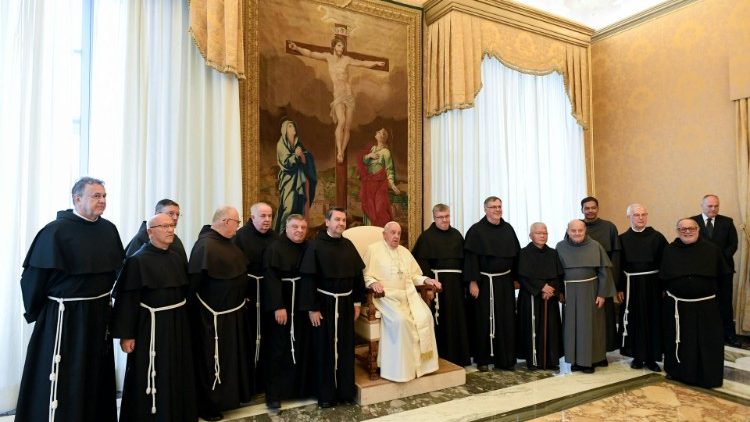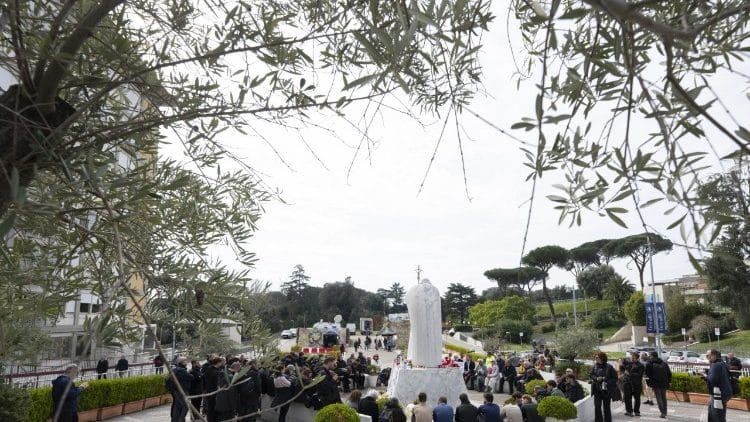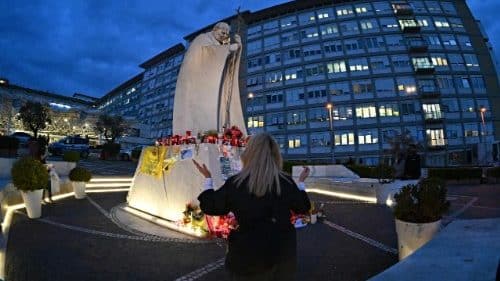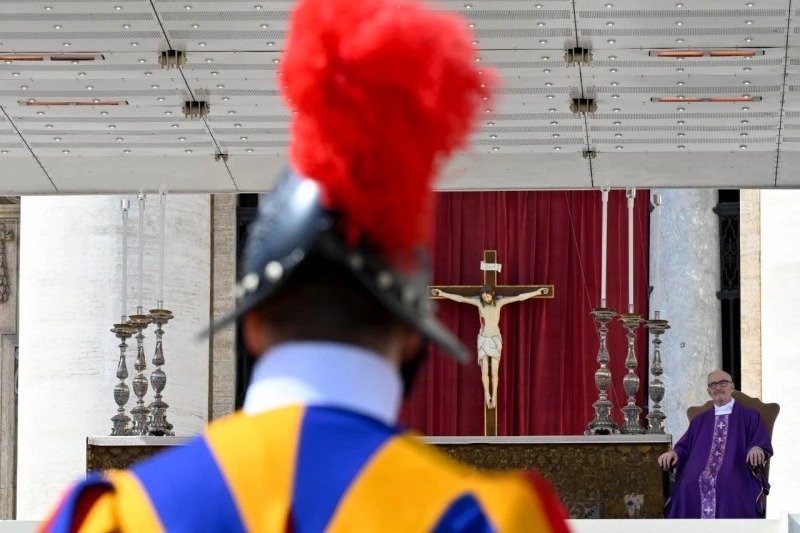Pope to Vatican confessors: “Do not be psychiatrists, forgive without asking questions”
A call to humility, listening and mercy in the ministry of reconciliation

In an emotional speech to confessors at St. Peter’s Basilica, Pope Francis reflected on the ministry of reconciliation, highlighting three essential virtues: humility, listening, and mercy. During his speech on October 24, the Holy Father urged penitentiary officers to listen attentively and forgive without questioning, emphasizing that compassion and understanding are fundamental in the sacrament of confession.
Listening and Forgiving
The Pope encouraged those present to “listen, not so much ask; do not act like psychiatrists, please: always listen with humility.” He stressed the importance of offering forgiveness unconditionally, emphasizing that “everything must be forgiven, always.” This approach invites penitents to find comfort and hope in God’s mercy, especially in moments of shame for their faults.
The meeting took place on the occasion of the 250th anniversary of the commissioning of the ministry of confessions in St. Peter’s Basilica to the Friars Minor Conventual, a legacy that the Pope recalled with gratitude.
The Search for God
Francis highlighted that St. Peter’s Basilica receives more than 40,000 pilgrims every day, many of whom come in search of reaffirming their faith and communion with the Church. However, many others are also tourists, attracted by the beauty of the place. In both cases, there is an inherent search: the search for God, for beauty and eternal goodness.
The Confessor as Messenger of Mercy
The Pope emphasized that confessors are instruments of divine mercy, charged with witnessing forgiveness and welcome within the Church. The figure of Peter was cited as an example of an apostle who, after recognizing his mistakes, became a courageous witness to sacrifice for others.
Francis explained that every confessor, like an earthen vessel, carries within him the treasure of God’s grace. Therefore, a good confessor must first seek forgiveness for himself, offering a humble prayer that cries out for mercy.
The Importance of Listening
The Pope stressed the importance of listening, especially to young people and the little ones. By doing so, one connects with the voice of God through the experiences of others, enriching the process of personal conversion.
The Pope’s advice to confessors is clear: instead of trying to fully understand the pain of a penitent, they should simply affirm “I have understood,” remembering that the fundamental thing is that God understands and that is what really matters.
Mercy as a Measure of Love
Finally, the Pope reflected on mercy, stressing that confessors must be “solar, generous men, ready to understand and console.” Through their attitude and words, they must offer the only medicine capable of healing the wounds of the soul: the mercy of God.
Francis recalled the teachings of St. Leopold Mandić, who advocated not humiliating souls who come to us seeking forgiveness, since they already carry their burden of suffering. With a light tone, the Pope shared anecdotes that illustrate the abundance of mercy that must characterize the ministry of confessors.
The Pope concluded his speech by thanking the penitentiary officers for their dedication and commitment, recalling that he himself goes to them seeking forgiveness. “Always forgive, everything and without asking too many questions. And if you do not understand, God understands,” he said, stressing the need to always keep the door of mercy open.
The Pope’s message is clear: in the sacrament of reconciliation, God’s love and mercy must prevail, guiding the faithful in their search for redemption and peace.
Related

Pope at Gemelli Hospital: Peaceful Night
Exaudi Staff
12 March, 2025
1 min

Pope Francis spent a peaceful night at the Gemelli Polyclinic
Exaudi Staff
11 March, 2025
1 min

Pope Francis shows stable improvement
Exaudi Staff
10 March, 2025
1 min

“The Lord is with us and takes care of us, especially in the place of trial”
Exaudi Staff
09 March, 2025
8 min
 (EN)
(EN)
 (ES)
(ES)
 (IT)
(IT)

